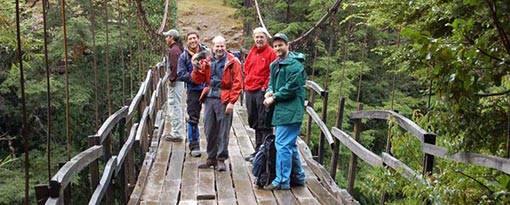
Environmental sociology is typically defined as the sociological study of societal-environmental interactions, although this definition immediately presents the perhaps insolvable problem of separating human cultures from the rest of the environment. Although the focus of the field is the relationship between society and environment in general, environmental sociologists typically place special emphasis on studying the social factors that cause environmental problems, the societal impacts of those problems, and efforts to solve the problems. In addition, considerable attention is paid to the social processes by which certain environmental conditions become socially defined as problems.
Although there was sometimes acrimonious debate between the constructivist and realist "camps" within environmental sociology in the 1990s, the two sides have found considerable common ground as both increasingly accept that while most environmental problems have a material reality they nonetheless become known only via human processes such as scientific knowledge, activists' efforts, and media attention. In other words, most environmental problems have a real ontological status despite our knowledge/awareness of them stemming from social processes, processes by which various conditions are constructed as problems by scientists, activists, media and other social actors. Correspondingly, environmental problems must all be understood via social processes, despite any material basis they may have external to humans. This interactiveness is now broadly accepted, but many aspects of the debate continue in contemporary research in the field.
Contents |
History
Modern thought surrounding human-environment relations is traced back to Charles Darwin. Darwin’s concept of natural selection suggested that certain social characteristics played a key role in the survivability of groups in the natural environment. Although typically taken at the micro level, evolutionary principles, particularly adaptability, serve as a microcosm of human ecology. Work by Humphrey and Buttel (2002) traces the linkages between Darwin's work on natural selection, human ecological sociology, and environmental sociology.
Academic

It became recognized in the latter half of the 20th century that biological determinism failed to fully explain the relationship between humans and the environment. As the application of social determinism became more useful, the role of sociology became more pervasive in analyzing environmental conditions. At first, classical sociology saw social and cultural factors as the only cause of other social and cultural conditions. This lens ignored the concept of environmental determinism or the environmental factors that cause social phenomena.
The works of William R. Catton, Jr. and Riley Dunlap challenged the constricted anthropocentrism of classical sociology. In the late 1970s, they called for a new holistic, or systems perspective. Since the 1970s, sociology has noticeably transformed to include environmental forces in social explanations. Environmental sociology emerged as a coherent subfield of inquiry after the environmental movement of the 1960s and early 1970s. It has now solidified as a respected, interdisciplinary subject in academia.
Concepts
Existential dualism
The duality of the human condition rests with cultural uniqueness and evolutionary traits. From one perspective, humans are embedded in the ecosphere and coevolved alongside other species. Humans share the same basic ecological dependencies as other inhabitants of nature. From the other perspective, humans are distinguished from other species because of their innovative capacities, distinct cultures and varied institutions. Human creations have the power to independently manipulate, destroy, and transcend the limits of the natural environment (Buttel and Humphrey, 2002: p.47).
Support for each perspective varies among different communities. Biologists and ecologists typically put more weight on the first perspective. Social scientists, on the other hand, emphasize the second perspective. This division has shaped the foundation for the primary paradigms of environmental sociology.



 Environment Writings
Environment Writings




